VATICAN CITY (CNS) — Setting the stage for a monthlong gathering of bishops, Pope Francis urged synod fathers not to be crushed by “prophets of doom,” but to be the signs of hope and joy for which today’s young people yearn.
“Anointed by hope, let us begin a new ecclesial meeting,” he said in his homily at Mass Oct. 3, opening the Synod of Bishops, which was to meet until Oct. 28 to discuss “young people, the faith and vocational discernment.”
The synod comes just a week and a half after the National V Encuentro, which also focused on engaging youth and young adults in the Church.
Filled with hope and faith, he said, the synod members can “broaden our horizons, expand our hearts and transform those frames of mind that today paralyze, separate and alienate us from young people, leaving them exposed to stormy seas, orphans without a faith community that should sustain them, orphans devoid of a sense of direction and meaning in life.”
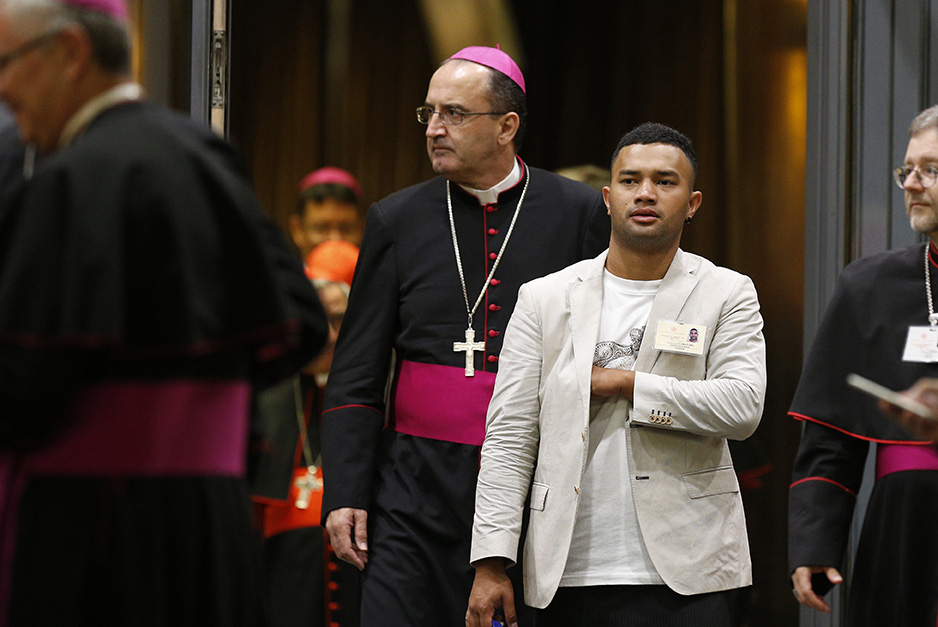
Among the hundreds of synod participants and thousands of guests celebrating Mass in St. Peter’s Square were two bishops from mainland China, the first from the communist country to attend a synod. With his voice shaking, the pope offered them “our warm welcome: the communion of the entire episcopate with the Successor of Peter is yet more visible thanks to their presence.”
Standing in front of St. Peter’s Basilica, which was decorated with a tapestry depicting St. Michael the Archangel battling the devil and one of St. Joseph holding the baby Jesus, Pope Francis told synod participants that young people want help in facing today’s challenges and need their commitment “to work against whatever prevents their lives from growing in a dignified way.”
“They ask us and demand of us a creative dedication, a dynamism which is intelligent, enthusiastic and full of hope,” he said. “They ask us not to leave them alone in the hands of so many peddlers of death who oppress their lives and darken their vision.”
He reminded the bishops that when most of them were young, Blessed Paul VI called on them during the Second Vatican Council to lead the way in renewing the world through Christ.
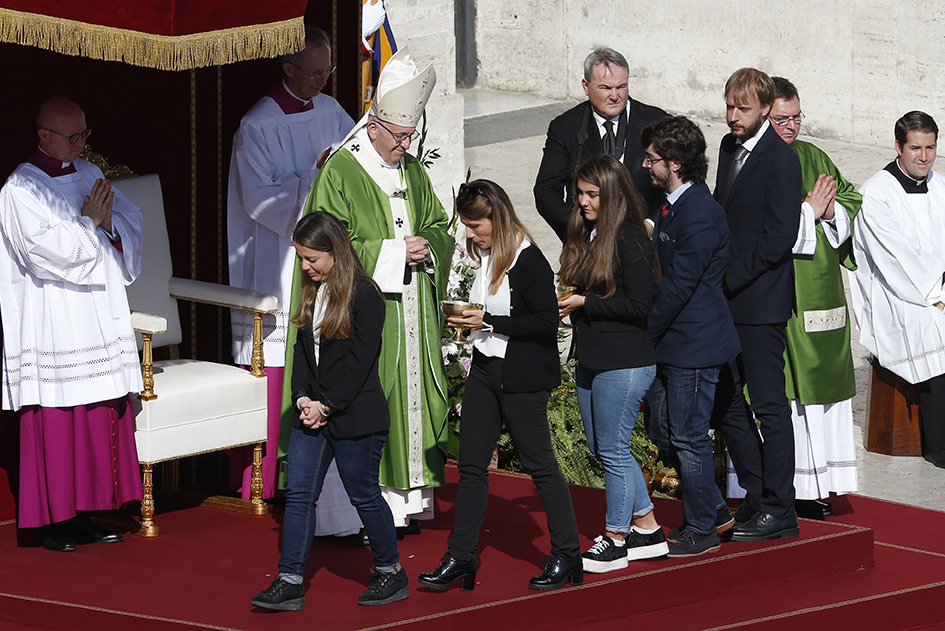
Quoting the soon-to-be saint’s message to young people in 1965, the pope recalled how the Church was depending on them — as young people of the day and the future of the Church — to “express your faith in life” and faith in “a good and just God.”
The late pope, he said, called on them to be open to the world, listen to and serve their brothers and sisters, “fight against all egoism. Refuse to give free course to the instincts of violence and hatred which beget wars and all their train of miseries. Be generous, pure, respectful and sincere, and build in enthusiasm a better world than your elders had.”
The memory of Blessed Paul’s appeal and of the bishops’ own youthful faith and passion for Christ must be rekindled “and renew in us the capacity to dream and to hope,” Pope Francis said. “For we know that our young people will be capable of prophecy and vision to the extent that we, who are already adult or elderly, can dream and thus be infectious in sharing those dreams and hopes that we carry in our hearts.”
May this memory never be “extinguished or crushed by the prophets of doom and misfortune, by our own shortcomings, mistakes and sins,” he added.
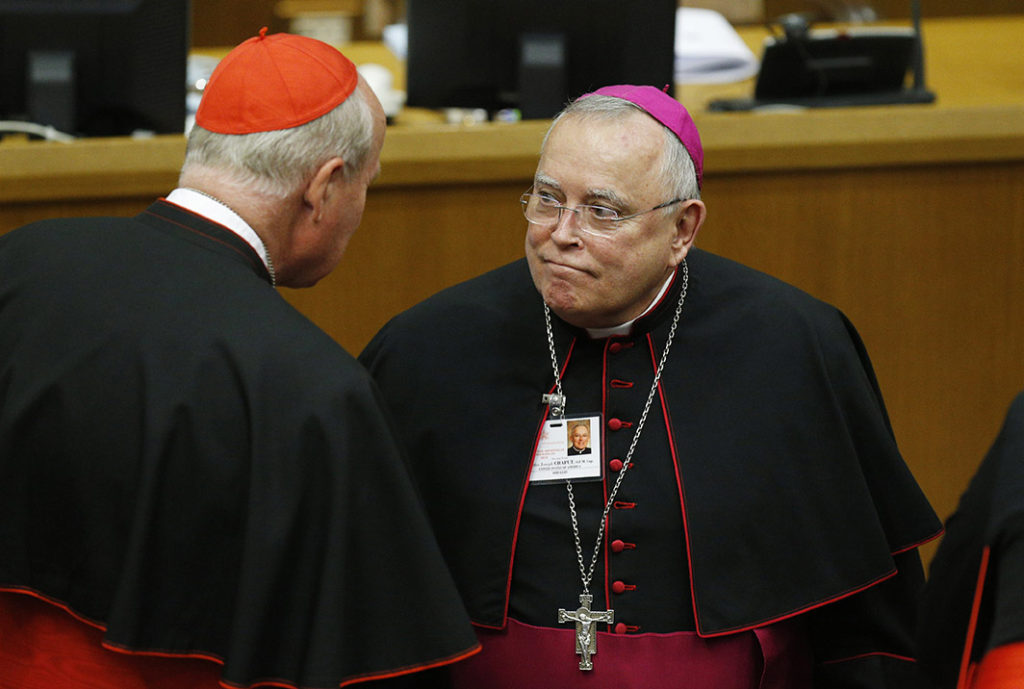
The pope asked synod members to participate in the upcoming discussions with an “attitude of docile listening to the voice of the Spirit” and to each other “to discern together what the Lord is asking of His Church.”
“This demands that we be really careful against succumbing to a self-preservation and self-centeredness which gives importance to what is secondary, yet makes secondary what is important,” the pope said.
With love for the Gospel and the faithful, synod members must aim to follow God’s will and “an even greater good that will benefit all of us. Without this disposition, all of our efforts will be in vain.”
“The gift of that ability to listen, sincerely and prayerfully, as free as possible from prejudice and conditioning, will help us to be part of those situations which the people of God experience,” he said.
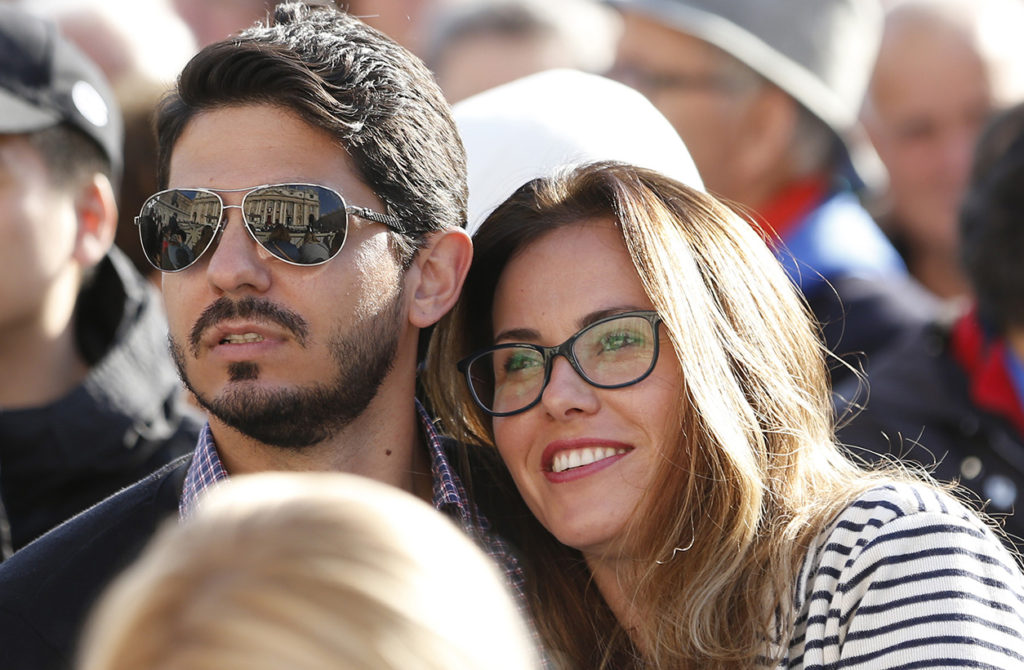
Listening to God and listening to the people reflecting on what they hear God calling them to is the approach the synod should take, the pope said, because it will protect “us from the temptation of falling into moralistic or elitist postures, and it protects us from the lure of abstract ideologies that never touch the realities of our people.”
Among the prayers of the faithful was, in Chinese, the prayer that the spirit of wisdom and discernment help the pope and bishops “seek the truth with an open heart and in all things be obedient” to God’s will.
At the end of Mass, the pope walked along the rows, greeting and speaking briefly one-by-one with the bishops and special delegates attending the synod. He also greeted the faithful and visitors in the square from his popemobile as the bells of the basilica rang.
Among those in St. Peter’s Square was Dcn. Javier Ayala of Santiago, Chile, a member of the Legionaries of Christ, studying in Rome.
He told Catholic News Service it was now “time for the bishops to reflect on these conclusions and to find the best way to reach out to young people.”
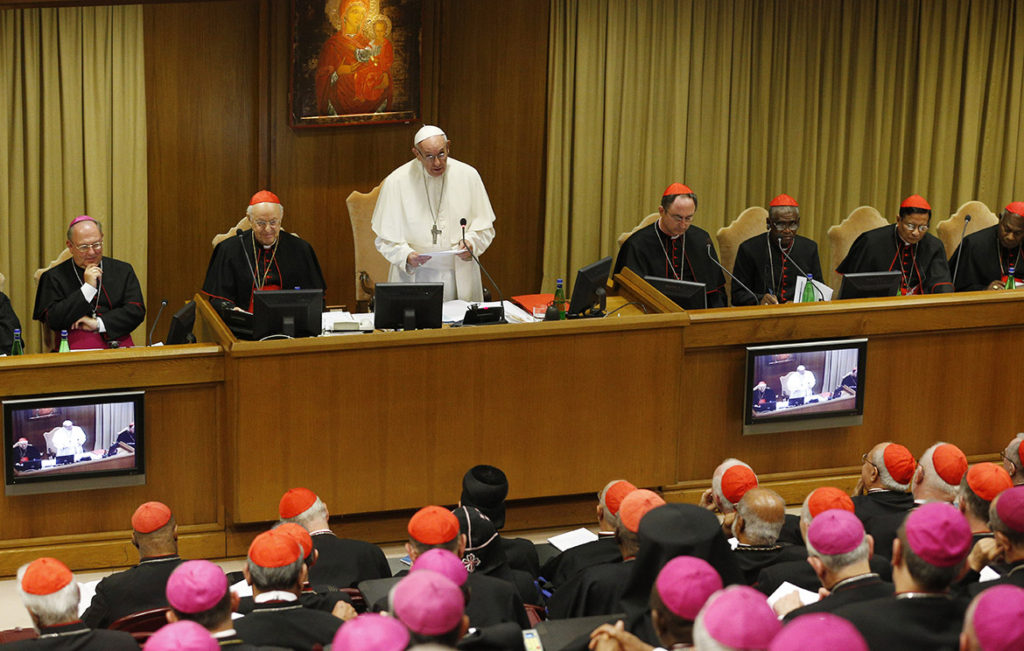
Dcn. Ayala, who is to be ordained a priest in Rome next year, assisted in the presynod process of collecting thousands of responses to a questionnaire and feedback via social media from young people; he also took part in a presynod meeting of young people in Rome in March.
“The Church is a mother and she knows that there are many young people outside and wants to call them; she wants to invite them because (the Church) isn’t just another institution. She wants to lead them to Jesus Christ who is the way, the truth and the life,” he said.
Many young people, he told CNS, said they need to be accompanied and need witnesses who are “happy, humble and close.”
“We shouldn’t expect precise solutions from the synod nor calculations,” he said. The point of the synod is “to keep reflecting on the best pastoral ways to reach young people. I don’t think this is an ending point, but rather a starting point that is part of the new evangelization of the Church.”
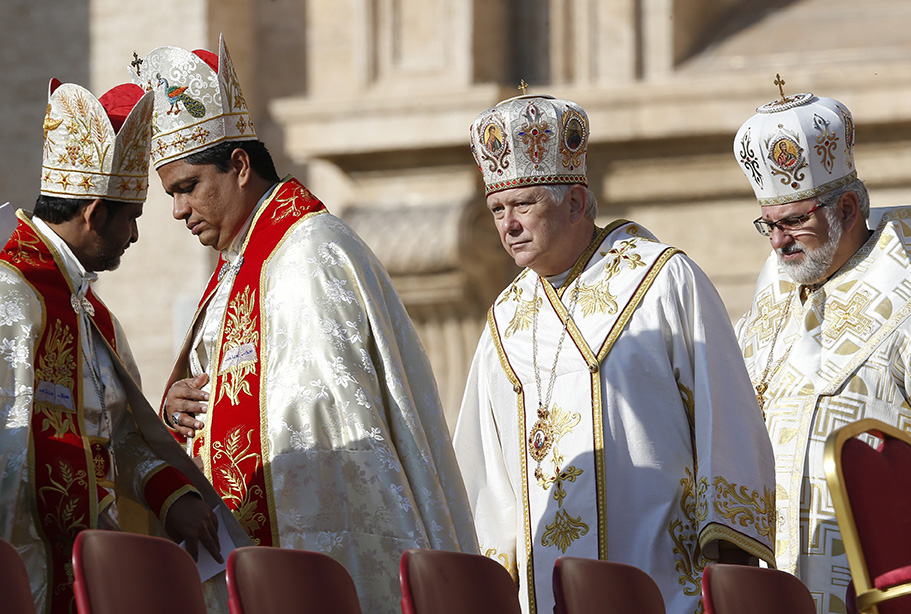
Pope asks bishops, young people to drop their prejudices as synod begins
At the synod’s first working session, Pope Francis asked bishops to be bold, honest, open-minded, charitable and, especially, prayerful. While many young people think no older person has anything useful to teach them for living today, the pope said, the age of the bishops, combined with clericalism, can lead “us to believe that we belong to a group that has all the answers and no longer needs to listen or learn anything.”
“Clericalism is a perversion and is the root of many evils in the Church,” Pope Francis said. “We must humbly ask forgiveness for this and above all create the conditions so that it is not repeated.”
The pope formally welcomed 267 bishops and priests as voting members of the synod, eight fraternal delegates from other Christian churches and another 72 young adults, members of religious orders and lay men and women observers and experts at the synod, which will meet through Oct. 28.
He also thanked the thousands of young people who responded to a Vatican questionnaire, participated in a presynod meeting in March or spoke to their bishops about their concerns. With the gift of their time and energy, he said, they “wagered that it is worth the effort to feel part of the Church or to enter into dialogue with her.”
They showed that, at least on some level, they believe the Church can be a mother, teacher, home and family to them, he said. And they are asserting that “despite human weaknesses and difficulties,” they believe the Church is “capable of radiating and conveying Christ’s timeless message.”
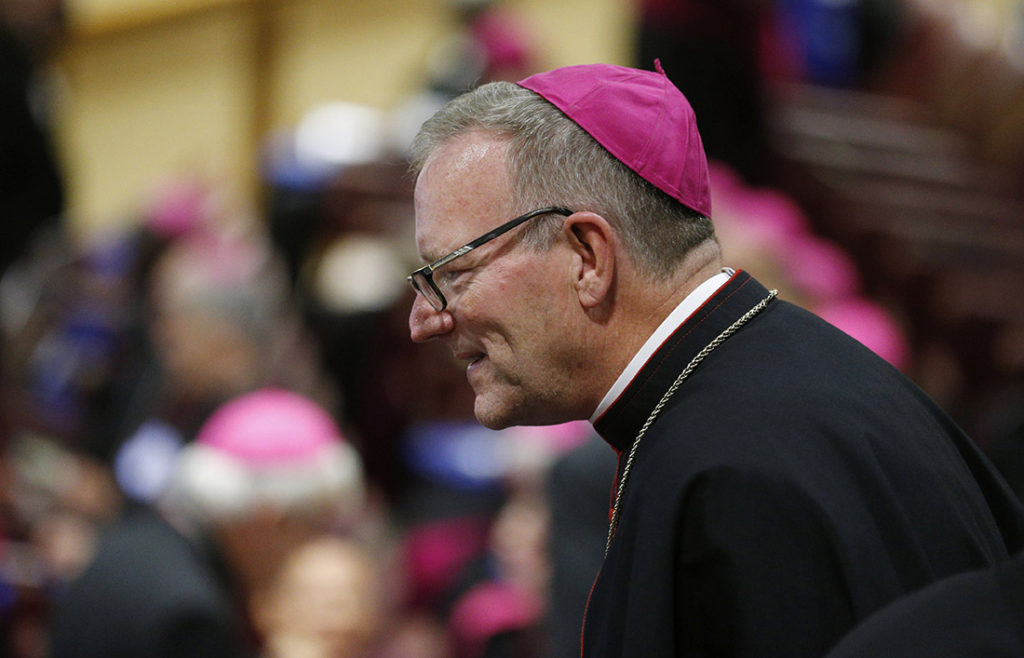
“Our responsibility here at the synod,” the pope said, “is not to undermine them, but rather to show that they are right to wager: It truly is worth the effort, it is not a waste of time!”
Pope Francis began the synod with an invitation that every participant “speak with courage and frankness” because “only dialogue can help us grow.”
But he also asked participants to be on guard against “useless chatter, rumors, conjectures or prejudices” and to be humble enough to listen to others.
Many of the synod participants arrived in Rome with the text of the three-minute speech they intended to give, but the pope asked them “to feel free to consider what you have prepared as a provisional draft open to any additions and changes that the synod journey may suggest to each of you.”
A willingness to “change our convictions and positions,” he said, is “a sign of great human and spiritual maturity.”
The synod is designed to be an “exercise in discernment,” the pope told them. “Discernment is not an advertising slogan, it is not an organizational technique or a fad of this pontificate, but an interior attitude rooted in an act of faith.”
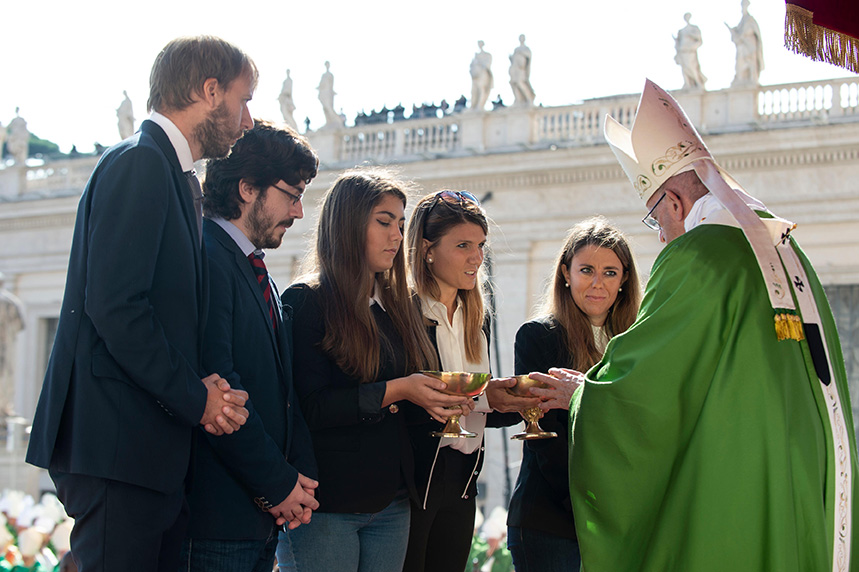
Discernment “is based on the conviction that God is at work in world history, in life’s events, in the people I meet and who speak to me,” he said. It requires listening and prayer, which is why the pope has added a rule that after every five speeches there will be a three-minute pause for silent reflection and prayer.
Listening to the Spirit, listening to God in prayer and listening to the hopes and dreams of young people are part of the Church’s mission, the pope said. The preparatory process for the synod “highlighted a Church that needs to listen, including to those young people who often do not feel understood by the Church” or feel they “are not accepted for who they really are, and are sometimes even rejected.”
Listening to each other, especially young people and bishops listening to each other, he said, is the only way the synod can come to any helpful suggestions for leading more young people to the faith or for strengthening the faith of young people involved in Church life.
“Adults should overcome the temptation to underestimate the abilities of young people and (should) not judge them negatively,” he said. “I once read that the first mention of this fact dates back to 3000 B.C. and was discovered on a clay pot in ancient Babylon, where it is written that young people are immoral and incapable of saving their people’s culture.”
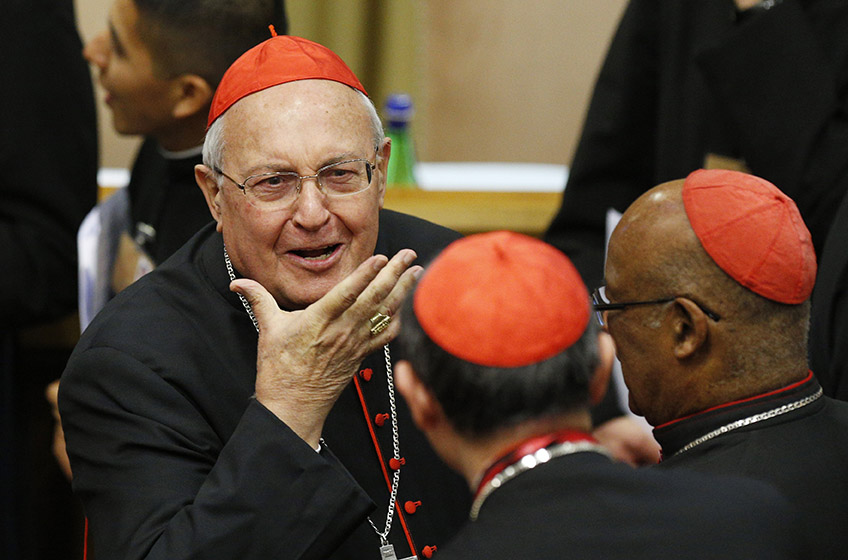
Young people, too, he said, must “overcome the temptation to ignore adults and to consider the elderly ‘archaic, outdated and boring,’ forgetting that it is foolish always to start from scratch as if life began only with each of them.”
Pope Francis, who was asked by some bishops to postpone the synod because of the clerical sexual abuse scandal, said he knows the present moment is “laden with struggles, problems, burdens. But our faith tells us that it is also the ‘kairos’ (opportune moment) in which the Lord comes to meet us in order to love us and call us to the fullness of life.”
The goal of the synod, Pope Francis said, is not to prepare a document — synod documents, he said, generally are “only read by a few and criticized by many” — but to identify “concrete pastoral proposals” that would help all Church members reach out to, walk with and support the faith of young people.
In other words, he said, the goal is “to plant dreams, draw forth prophecies and visions, allow hope to flourish, inspire trust, bind up wounds, weave together relationships, awaken a dawn of hope, learn from one another and create a bright resourcefulness that will enlighten minds, warm hearts, give strength to our hands and inspire in young people — all young people, with no one excluded — a vision of the future filled with the joy of the Gospel.”
Contributing to this story was Carol Glatz, Junno Arocho Esteves and Cindy Wooden at the Vatican.







